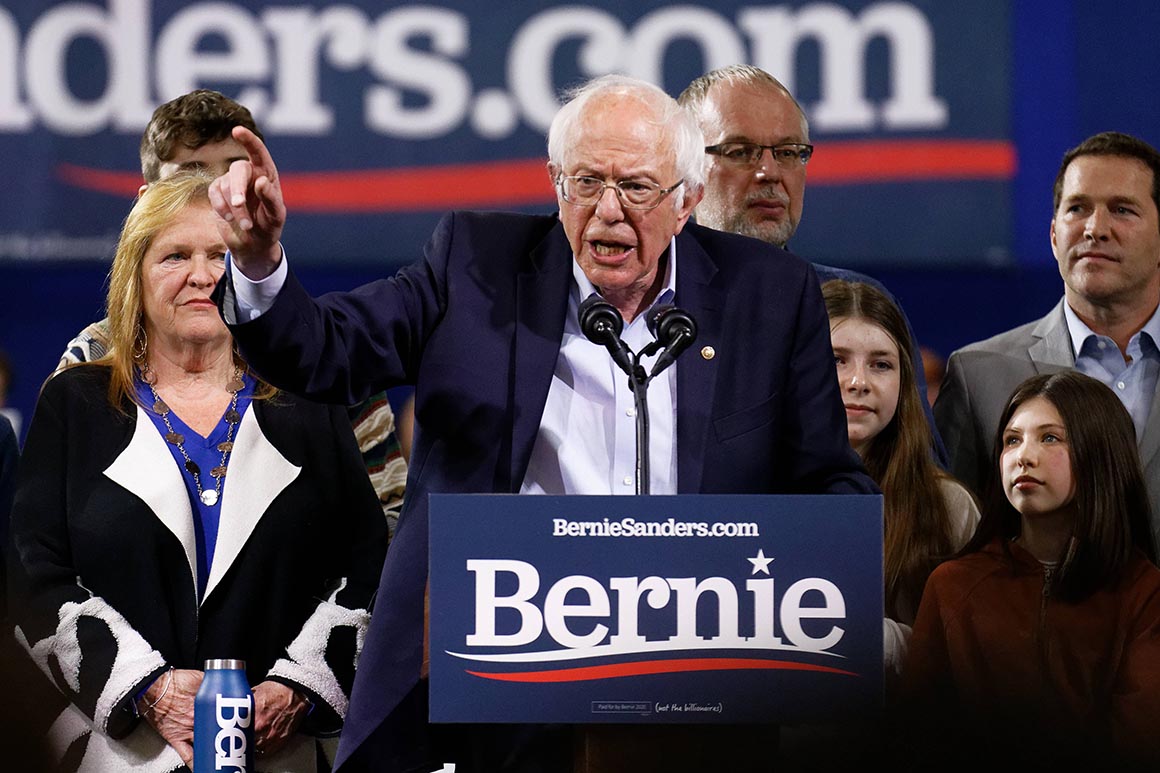
After facing questions for weeks about whether Sanders would shift his message to broaden his base, Sanders’ campaign co-chair, Rep. Ro Khanna, said his candidate will work to appeal more to older voters and mainstream Democrats.
“We need to make the case that single-payer [health care] will provide long-term care, dental and vision for seniors, that our policies are pro-innovation and -economic growth,” he told POLITICO, “and that we are very proud of the accomplishments of the Democratic Party, starting from FDR, and are building an inclusive coalition to complete the New Deal.”
The question for Sanders now is whether his shift is too little, too late. After the Super Tuesday dust settles, more than a third of the primary’s delegates will have been awarded. And, with Mike Bloomberg’s withdrawal from the race and endorsement of Joe Biden Wednesday, the moderate wing of the Democratic Party is now firmly behind the former vice president.
It also remains to be seen whether Sanders’ campaign and the candidate himself will stick to this shift. Sanders’ refusal to change is simultaneously his greatest political asset and potentially fatal flaw.
At a news conference Wednesday, Sanders underscored his new attack ads against Biden, saying he needs to explain to Americans why he supported “disastrous” trade agreements, the Iraq War, and the “Wall Street bailout.” The spots — which are airing in Arizona, Florida, Idaho, Illinois, Michigan, Mississippi, Missouri, Ohio and Washington, states that vote March 10 and 17 — criticize Biden’s record of entertaining Social Security cuts and supporting free trade deals.
Sanders is also airing an ad that features Obama saying that he has “great authenticity, great passion, and is fearless.” But instead of clearly boosting the message that Sanders is looking to appeal to traditional Democrats at his news conference, he sent mixed messages. While noting that he and Obama worked to boost funding for community health centers and that he is grateful the former president is staying neutral in the primary, Sanders also said, “I’m not going to say he and I are best friends — we talk every now and then.”
Sanders’ aides still very much see a path to victory, however. They believe he has a shot at winning five of the six states that vote next week, including Michigan and Washington, which have the day’s largest delegate hauls. On March 17, they see states such as Illinois and Arizona — the latter of which is home to many Latino voters, among whom he has performed well in the first 18 states — as strong spots.
They also think that a one-on-one race with Biden benefits them.
“It’s a reset. This is the first time this has turned into a two-person race between Bernie and Biden,” said Ben Tulchin, Sanders’ pollster. “We believe we’ll do well with that contrast. Biden spent his career trying to cut Social Security. Bernie has fought to expand and protect it.”
In an all-staff call on Wednesday afternoon, Faiz Shakir, Sanders’ campaign manager, said the team now has the clarity it long wanted. The campaign, he said, plans to draw more aggressive distinctions in upcoming weeks, including over the former vice president’s relationship with credit companies.
Sanders and his aides also argue that once the vote is fully in from California — the largest delegate prize Tuesday, which Sanders won — that he and Biden will be more or less neck and neck. “My guess is that after California is thrown into in the hopper, it’s going to be pretty close,” Sanders said.
Biden currently has 566 pledged delegates to Sanders’ 501. But the Super Tuesday map was favorable to Sanders, and Biden won in states where Sanders was expected to succeed, such as Maine, Texas, Massachusetts and Minnesota. Biden also performed more strongly among voters who made up their minds in recent days, after he clinched South Carolina and moderates coalesced behind him.
Source: politico.com
See more here: news365.stream






